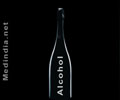From a normal perception teenagers are less sensitive to alcohol effects than adults, but the mechanism underlying this fact is not very clear.

The study is the first to identify a mechanism underlying one of the main behavioral differences between adolescents and adults in their response to alcohol.
"This study is a significant advancement in understanding why adolescents are insensitive to alcohol and provides some insights into why teens might consequently consume alcohol to dangerous levels," said Dr. Doug Matthews, a research scientist at Baylor who led the study.
"This differential effect is not due to different blood-alcohol levels. Such reduced sensitivity in teens is troublesome considering that binge and heavy alcohol consumption increases throughout human adolescence and peaks at 21 to 25 years of age. Therefore understanding the mechanisms that underlie the reduced sensitivity to alcohol during adolescence is critical."
Specifically, the Baylor researchers found the firing rate of a particular neuron called the cerebellar Purkinje neuron was insensitive to large alcohol doses in adolescent animal models, while the firing rate of those neurons was significantly depressed in adults.
The spontaneous firing rate in adults from Purkinje neurons decreased approximately 20 percent, which researchers said indicates potential motor impairment.
Advertisement
The Baylor researchers said this alcohol-induced reduction of spontaneous Purkinje neuron firing rates in adults could explain the greater sensitivity to alcohol's motor impairing effects in adults compared to adolescents. However, there are likely to be contributions from other systems involved to cause thee different behavioral effects.
Advertisement
Source-ANI















